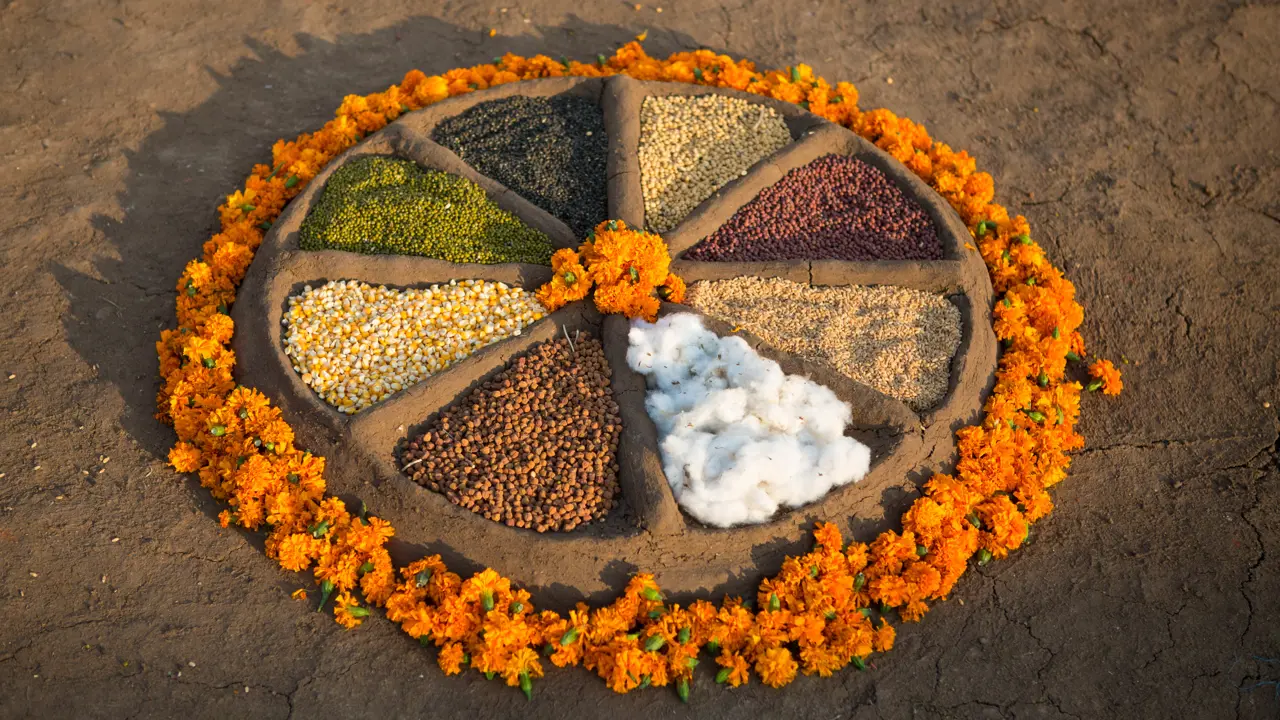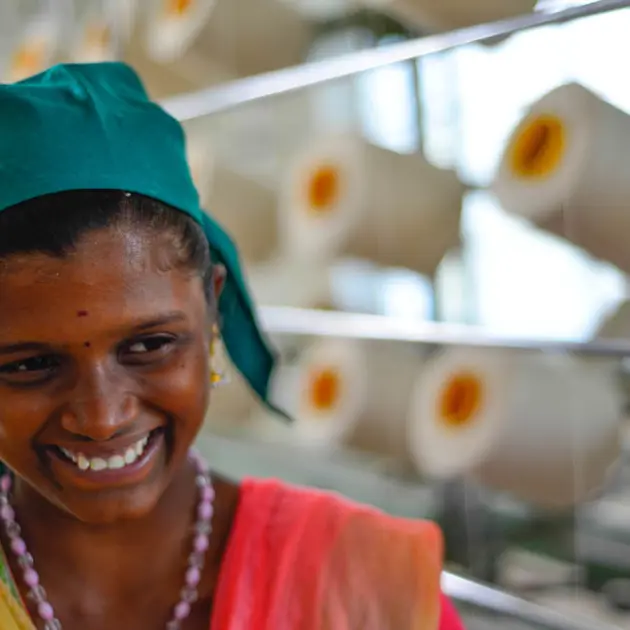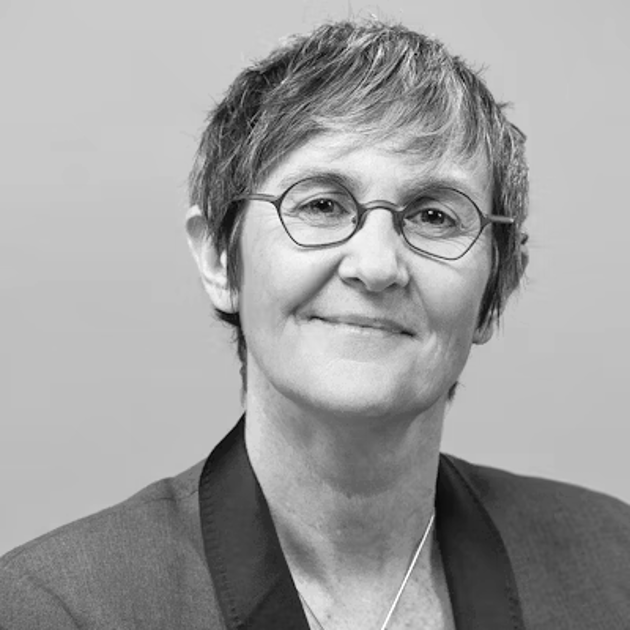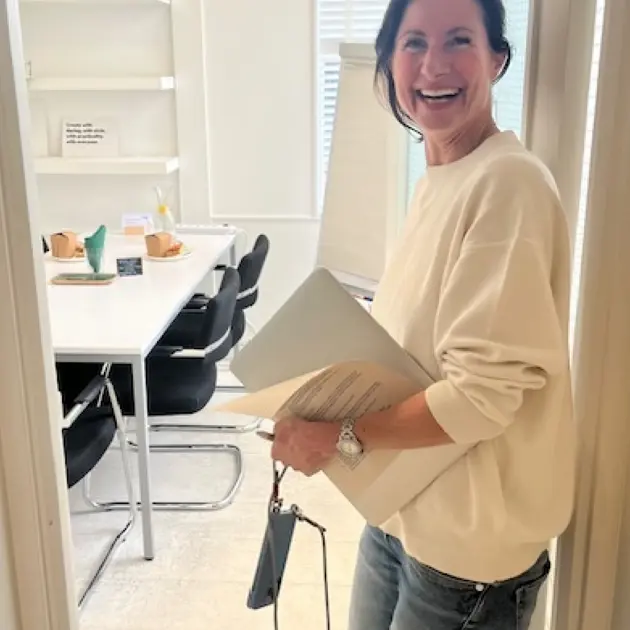Building a movement to unlock deep transformation in the fashion supply chain

At Laudes Foundation, our endeavour is to continue to evolve our partnerships as we learn, deepen our understanding, and adapt to address systemic issues that impact people and the planet. This means, we are committed to driving collaboration among mission-aligned actors and interconnected efforts with the goal to advance action that is both climate-positive and socially-inclusive within our industries of focus – fashion, food, finance & capital markets, and the built environment.
Here’s an example from our Fashion programme. Recently, Laudes’ long-time partner Organic Cotton Accelerator (OCA) announced a strategic partnership with the Laudes Foundation, IDH, and WWF India founded Regenerative Production Landscape Collaborative (RPLC) in Madhya Pradesh, India.
This partnership exemplifies collaboration within the fashion supply chain, where OCA provides support at the farm level and RPLC oversees holistic landscape transformation.
A step towards transition
Our work with OCA began in 2016 as part of an initial commitment to advance the sustainable cotton production ecosystem, specifically focused on improving practices at the farm level. OCA’s work has been vital, helping over 80,000 farmers in India adopt organic and regenerative methods that improve soil health, reduce pesticide use, and promote fair labour practices.
A key strength of OCA has been the ability to connect farmers to markets that reward these regenerative practices with price premiums, ensuring the benefits of organic cotton production are passed directly to the farmers themselves.
This partnership laid the groundwork for what would become a broader vision - one that goes beyond individual farms and looks at how entire agricultural ecosystems can thrive as an important part of the fashion materials supply chain.
OCA has been a critical partner in demonstrating how organic farming can work in practice, and if these essential on-the-ground interventions are supported by larger-scale approaches, this can help to fully transform the system.
Scaling impact to the landscape level
With a stronger understanding of the interconnected challenges in agriculture, the need to expand focus to the broader landscape became clear. This is what led to the birth of RPLC.
While OCA addresses cotton farming at a single-issue level, RPLC takes a macro approach by working across various crops and regions to solve environmental and socio-economic challenges that transcend farm boundaries – addressing issues such as water management, biodiversity loss, deforestation and farmer livelihoods.
We know that no single actor can achieve transformation in isolation, and it is through partnerships that systemic, lasting change is possible. RPLC uses a Public Private Philanthropy Partnerships (PPPP) model, facilitating collaboration between diverse stakeholders, including farmers and producers, businesses and brands, governments, investors and donors. The strength of this approach lies in all stakeholders collaborating on shared challenges, instilling each stakeholder group with ownership and agency, inspiring them to co-create solutions.
For instance, brands get the opportunity to engage more deeply with the regions and suppliers they source from, and the inclusion of local governments in the RPLC ensures farmers and communities are included in building processes and decision-making.
Going from strength to strength
The partnership between OCA and RPLC is the logical progression of an integrated strategy to connect the entire supply chain — from farmers and landscapes to brands and consumers.
By aligning OCA’s farm-level innovations with RPLC’s landscape-level interventions, the partnership enables local successes to scale up, ultimately benefiting not only individual farmers but entire regions. The RPLC looks to cover over 100,000 farmers over 300,000 hectares by 2026 in Madhya Pradesh.
This will ultimately bridge the gap between local action and systems-level transformation, ensuring progress is both scalable and sustainable.
RPLC continues to partner with organisations to build a robust approach and incorporate mechanisms to support these efforts and the transition of industry practices, for example:
Our support for Fashion Pact’s Unlock Programme, an initiative that drives regenerative practices by providing farmers with technical expertise and financial resources, ensures farmers are not only improving their farming methods while combating climate change, but also benefitting economically from the transition to organic and regenerative practices.
We also support Gold Standard Foundation to develop a robust impact claims and attribution framework that will enable the measurement of multiple outcomes at the landscape level. These will include impacts around emissions reductions, water conservation, income improvements, and biodiversity gains, also ensuring these claims can be accurately attributed to the businesses and investors who source from or invest in the landscape.
Going beyond partnerships
Scaling initiatives of this calibre and true systems-levels intervention requires more than partnerships. It demands filling existing gaps in policy support, financing, and infrastructure to realise the full potential of regenerative agriculture and landscape approaches.
We need more investors willing to support long-term transitions, more brands committed to sourcing responsibly, and more local and global policy frameworks that prioritise resilient landscapes. As this work evolves, our focus will be on unlocking these aspects.
To learn more about our work in landscapes and how you can join the movement, write to us at fashion@laudesfoundation.org.


